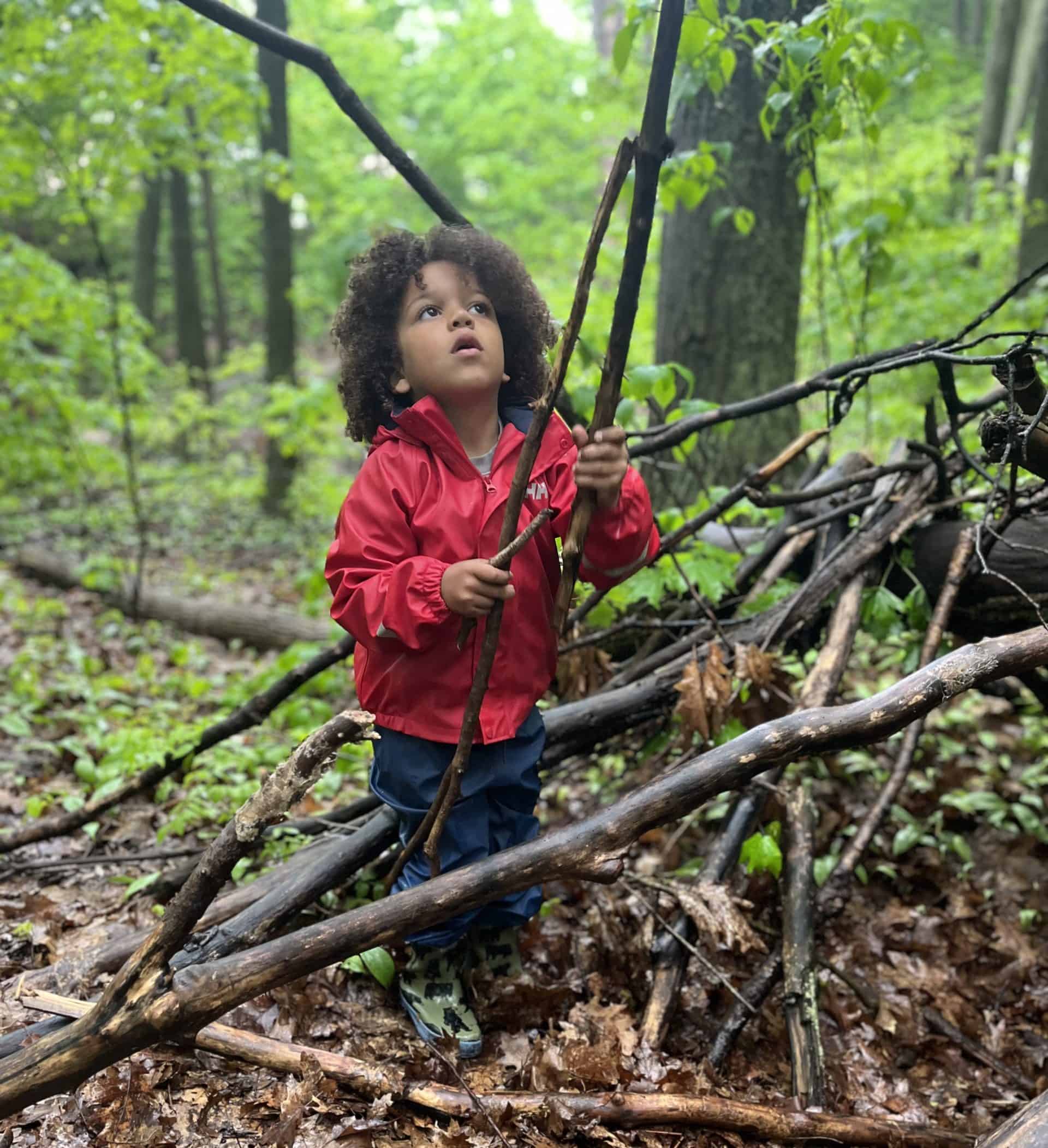
Research: “I’d rather learn outside because nature can teach you so many more things than being inside”
Thank you to Dr. Tanya Halsall, the Royal Ottawa, and Laurel Donison, Brock University, for providing this post.
Outdoor and nature-based activities promote better health and academic outcomes for children, where the school context represents a critical opportunity to support increased outdoor time. However, outdoor learning is not implemented consistently across school contexts, and as such, many students do not receive the opportunity to participate. This blog post focuses on data from our study (Donison & Halsall, 2023) that explored young children’s perspectives of learning within an outdoor context and how aspects of nature enhance learning.
We collected semi-structured interviews with students, their parents and school staff who were involved in outdoor learning. An exploratory thematic analysis was applied using NVivo. Themes focused on children’s immersive experiences within the environment.
Two main themes were identified: i) Nature as the teacher and ii) Child-led exploration of nature. In addition, four subthemes were identified: i) seasonal change influencing inquiry, ii) engagement with other living things in nature, iii) dimensionality of the outdoors as an element that enhances learning and iv) learning driven by play.
We recognize children as having valuable knowledge to share with us about their views of the world. This aligns with Articles 12 and 13 of the United Nations Convention on the Rights of the Child that state that children have the right to share their opinion and to be heard in matters that affect them. Embracing children as citizens with rights is important because they have unique perspectives, and they deserve to have opportunities to share them.
Educators and children shared many stories that described how student inquiry can be guided by the complexity and dynamic quality of their natural surroundings;
“We (the teachers) do not need to be the only ones teaching. I think it’s like, there is a natural teacher. And I love that when I’m outside, that I’m not the holder of all knowledge, like I’m learning and have all this wonderment beside them. We can let go and let the land teach.” (Educator)
Educators highlighted how this stepping back helped to drive students’ curiosity and motivation to learn. These was exemplified by children’s descriptions of the interactions they had with living things in their lessons:
“We actually went to the park across the schoolyard the other day. And back in with trees, we found like a whole big pile of caterpillars, like a big pile. And they were just like, with their heads back and forth… We called it caterpillar dance party.” (Student)
This student’s mother elaborated on how the caterpillars can enhance learning experiences:
“…being in the outdoors, interacting, gives them something inspiring to return and write about in an authentic and purposeful way. Where like, using a writing prompt from a Scholastic book or whatever. Like, maybe that has its value, but the kids could write and write and write about the dancing caterpillars.”
Findings highlight the immersive opportunities presented by learning outdoors, whereby the surroundings offer both emergent opportunities for learning, but also new dimensions for interaction:
“we went out and we drew maps from memory of a place on the land that we were at. Then we go out and we check our map and add details … And we look at the grids and we start learning about X axes and Y axes and coordinating. So that was our math we integrated.” (Educator)
Finally, movement-based activities were a highlight shared by children with one participant describing his experiences with tobogganing, going down hills, over bumps of snow and doing a “flip in a loop de loop.” (Student)
Through the centring of children’s voices, it is hoped that this research can bring attention to the importance and meaning that outdoor experiences have for students. Our findings also highlight the enhanced learning afforded by the outdoors and the opportunity to integrate play-based approaches to enhance curriculum.
Dr. Tanya Halsall is a Scientist at the University of Ottawa Institute of Mental Health Research at the Royal and an Adjunct Research Professor in the Department of Neuroscience at Carleton University.
Laurel Donison is a PhD candidate in Brock University’s Department of Child and Youth Studies.
Cover image credit: Laurel Donison

